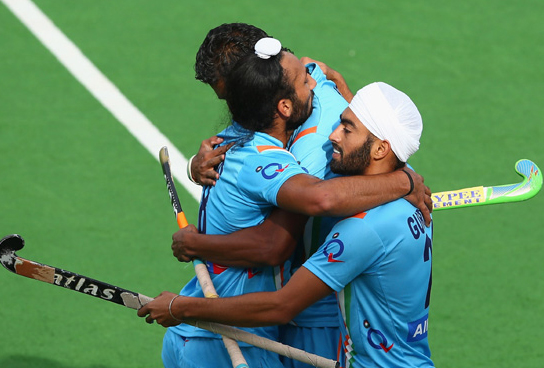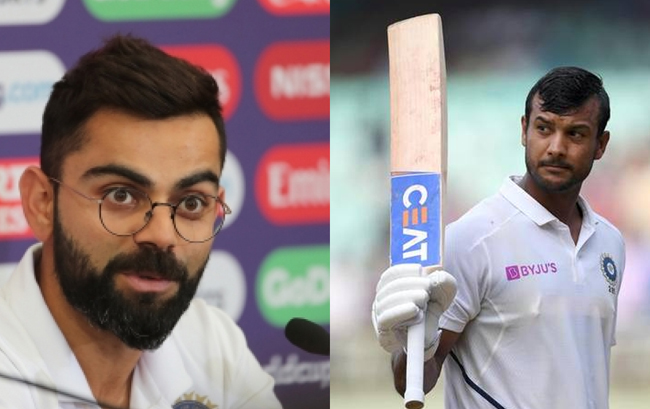
Melbourne, December 6: India turned a leaf in their hockey history to enter the semi-finals of the men's Champions Trophy on their return to the tournament after a gap of six years. They beat Belgium in a 1-0 cliffhanger to book a meeting with either Australia or England.
The win earned India their first shot at a Champions Trophy medal in 30 years, with their last medal - a bronze - coming in 1982. The hard-fought victory also ensured India a top-four finish in the elite tournament since 2004 when they finished fourth in Lahore, Pakistan.
Nithin Thimmiah's goal in the first half gave India the fillip they needed, but Sardar Singh's boys had to ward off a threatening Belgium in the second half to hold onto their lead. But the Indian defence, especially vice captain VR Raghunath, stood up tall to keep out a flurry of penalty corners earned by Belgium in the closing stages.
Sardar Singh, who was facilitated at the start of the match for his 150th international appearance, once again made a vital assist that allowed Thimmiah score his second goal of the tournament. A perfect pass found Thimmiah 12 yards off the Belgian post and he finished off with a tap-in job that sounded the board to make it 1-0.
Two late penalty corners conceded at the end of the first half gave India a scare but the Belgians couldn't convert either, including a disallowed tap-in after the whistle, as they went into the breather a goal down.
India had the better of opening exchanges in the second half but Yuvraj Walmiki and Gurvinder Singh Chandi missed two close chances. The last 15 minutes saw the red shirts storming Indian 25-yard line repeatedly. India did counter a few times on the break but the finishing kept eluding the strikers.
In the end, Thimmiah's goal stood as the lone strike of the match, taking India through to the semis. In the earlier two quarter-finals, Pakistan beat Germany 2-0 to set up a semi-final meeting with Netherlands who beat New Zealand 2-0.





Comments
Add new comment